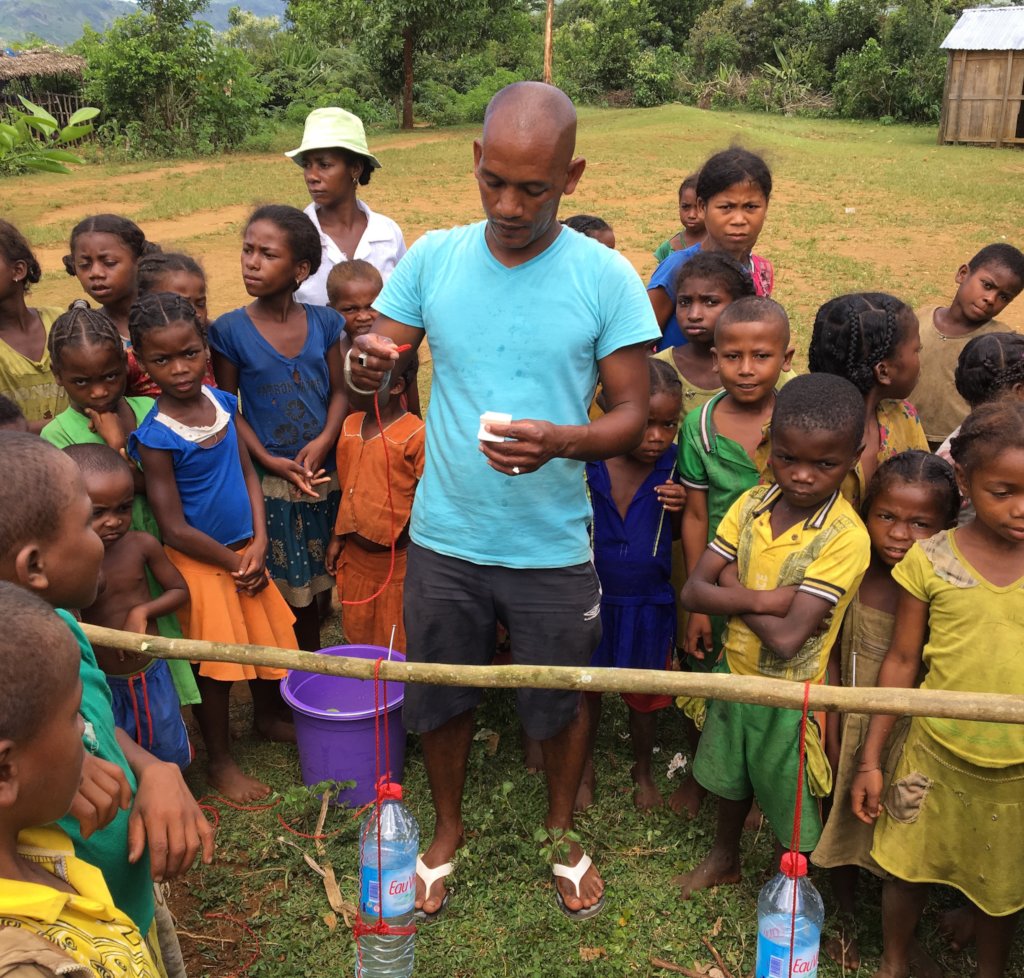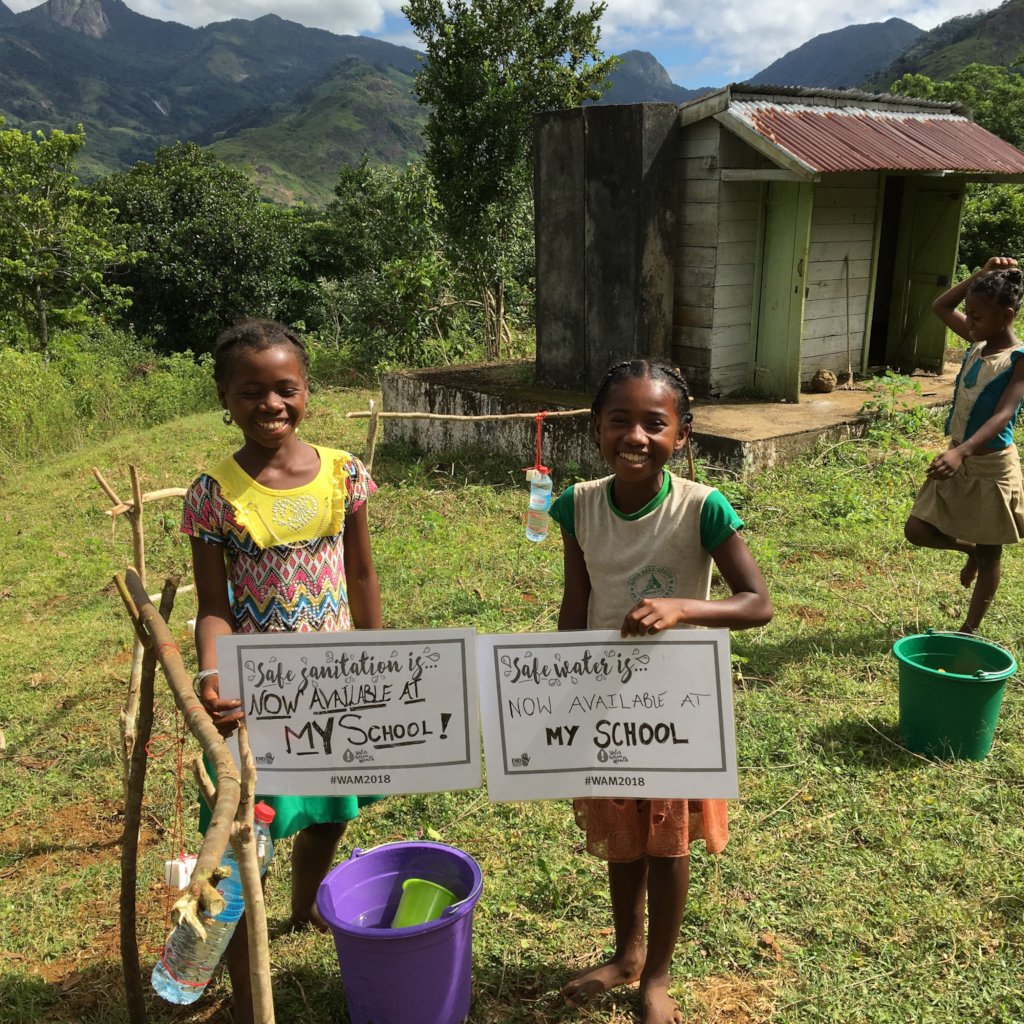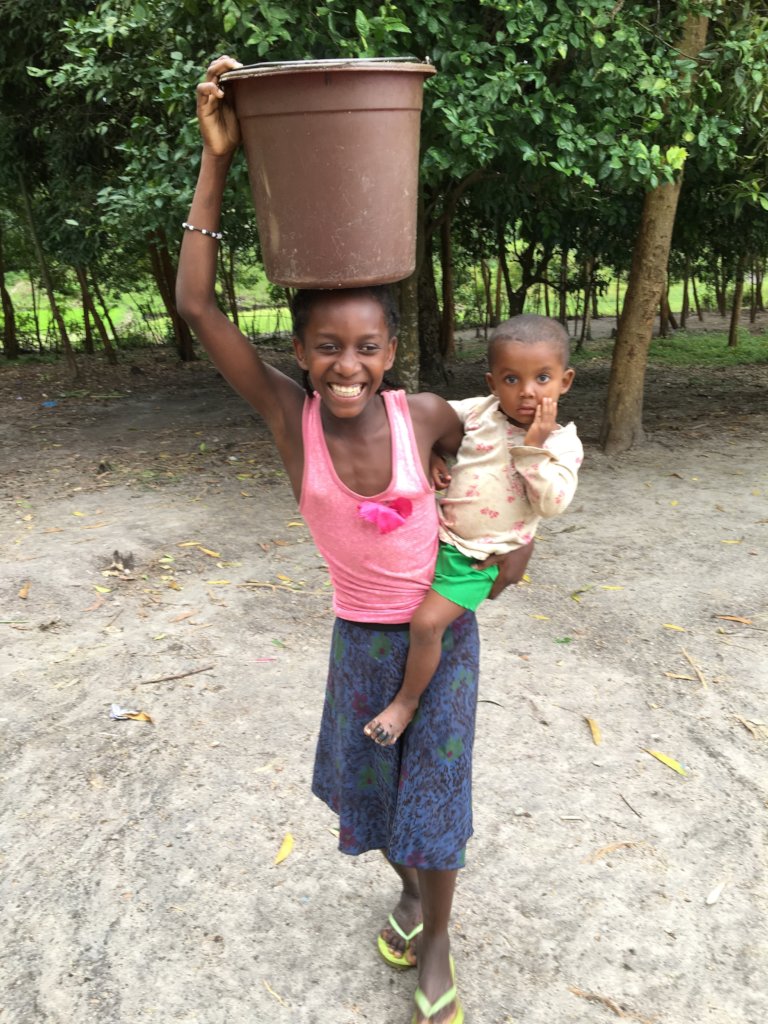By Simren Herm-Singh | Project Development Officer
18 months ago, 15 communities of the Rural Mahatalaky Commune did not have access to safe drinking water. The community wells had long fallen into disrepair, forcing families to drink water from pools, puddles and rivers nearby.
The general lack of infrastructure and widespread practices of open defecation in the area mean surface waters and rivers are highly contaminated, causing high levels of water borne illnesses amongst the communities. With diarrheal disease one of the most common causes for child deaths under five, the lack of access to safe water remains a major public health challenge in southeast Madagascar.
Over the past 18 months, Project Fatsaka has successfully addressed this challenge, supporting 15 isolated communities to regain access to safe water in their community wells. Today, over 10,000 people living across these 15 communities have access to safe drinking water again and mothers no longer have to worry about losing their children to dirty water!
Improving drinking water practices & hygiene education
Low levels of education, the lack of access to good water and sanitation infrastructure and low attitudes and motivation all contribute to generally poor hygiene practices amongst the communities.
As women are expected to collect a lot of water to meet the cooking and drinking needs of their families, they often lack the motivation, or do not have the time, to make enough trips to collect sufficient water for their whole family to practice good hygiene. Consequently, good hygiene practices aren’t engrained amongst the wider community.
To ensure communities not only have access to clean water, but also understand and practice good drinking water and hygiene practices, Project Fatsaka organised regular community meetings to educate members on the health benefits of drinking water from safe sources, like wells.
During school, water, sanitation and hygiene (WaSH) sessions SEED taught school children of all age groups how germs travel into open water sources through open defecation and can cause illness and disease. Practical demonstrations garnered laughter and enthusiasm as kids learnt about health and hygiene in a fun and engaging way.
In a country where easily preventable diseases, such as the plague, are reoccurring, it is crucial that rural communities are educated on the importance of basic hygiene and safe water sources, to prevent the spread of epidemics. This education has to include the youngest members of society.
Well management and maintenance
Although the 15 communities were provided with wells by other organisations in the past, no one in the communities knew how to operate and maintain the wells properly.
Water infrastructure provision does not equate to access to a functional and reliable water source. For wells to work and provide clean and safe drinking water, they have to be managed and maintained. This is especially true for the isolated communities Fatsaka works in, which are located in mountainous regions, where heavy rains and environmental stressors impact the durability of wells.
Lacking the skills and knowledge to repair and maintain their community wells effectively, all 15 rural community wells fell into a state of disrepair in the last few years. As a result 10,000 people did not have access to safe drinking water.
To address this problem, Fatsaka trained members in each community on the skills and knowledge to repair and maintain their wells properly. SEED supported communities in establishing well committees that will be in charge of managing the wells independently. With SEED’s support and training these committees can now autonomously ensure that the communities can finance, repair and maintain their wells without needing external support or funding. Today, communities have the skills and capacity to help themselves the next time the wells break or have problems. Ultimately, this will allow rural families to sustain access to a functional and safe water source long after Project Fatsaka’s end.
Strengthening institutions
Throughout the past 18 months of the project, the 15 well committees proved to take their responsibility very seriously and successfully learnt how to manage and repair their community wells. To increase the likelihood that well committees continue to do their work effectively and take their responsibility seriously after Fatsaka’s project close, SEED included the local Commune in the project.
Fatsaka closely collaborated with the local mayor, convincing him to increase his support to the communities and take responsibility for providing safe water to the 10,000 people living across the 15 communities. SEED’s effort proved successful, with a very engaged mayor who decided to employ two additional agents.
Since last April these agents have been in charge of supporting and monitoring the work of the well committees on a regular basis. SEED trained these two agents on how to effective support the committees and supervised their work for several months.
By including and strengthening local political institutions, Project Fatsaka has achieved greater sustainability and accountability. With the support of the Mayor and his Commune agents, the people of the Rural Mahatalaky Commune will have someone to turn to if there happen to be any issues with their well committees or wells in the future.
In summary
After 18 months of extensive community outreach and mobilization, technical training sessions and institutional engagement, Project Fatsaka will come to a close in September 2018. Throughout the project, SEED has invested in the potential of local communities and institutions, recognizing that local, community-led solutions are key to long-term sustainability. By training local actors to play an active role in the management and maintenance of rural well infrastructure, Project Fatsaka has empowered 15 communities to find their own solutions to water resource management.
Today over 10,000 people in rural communities have regained long-term access to safe drinking water and have a healthy alternative to water from dirty puddles, rivers, or pools. Mothers no longer have to worry about child death due to waterborne disease and village elders can refer to the well committees when the wells require repairs. With the help of Project Fatsaka, 15 rural communities now have the necessary skills, knowledge, and motivation to continue to have access to safe drinking water indefinitely!
Project reports on GlobalGiving are posted directly to globalgiving.org by Project Leaders as they are completed, generally every 3-4 months. To protect the integrity of these documents, GlobalGiving does not alter them; therefore you may find some language or formatting issues.
If you donate to this project or have donated to this project, you can recieve an email when this project posts a report. You can also subscribe for reports without donating.


